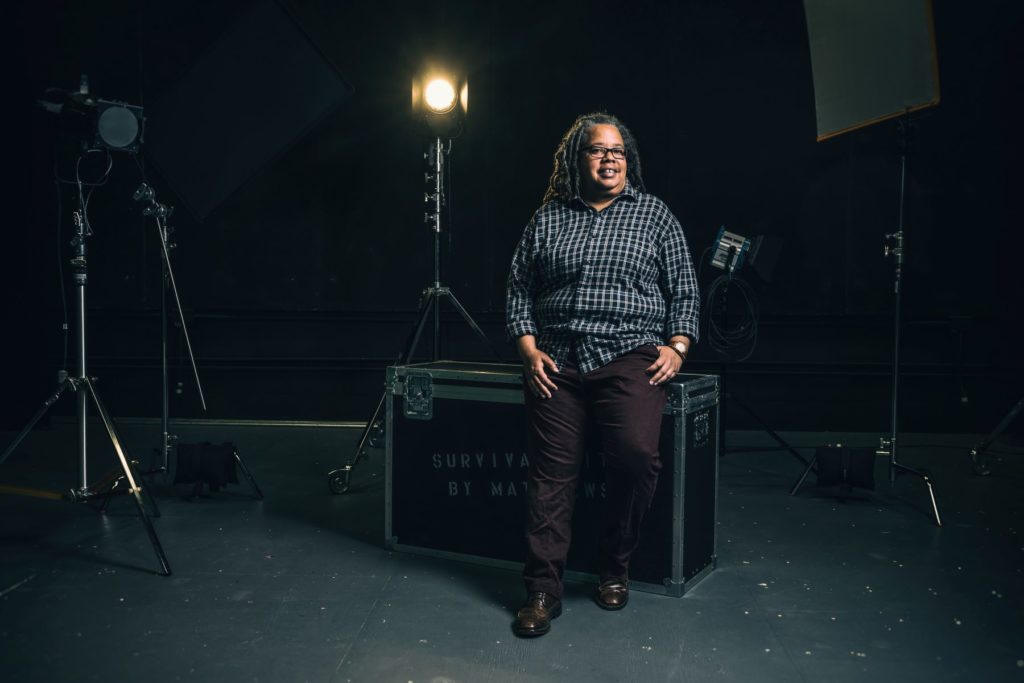
Story by Ed Berthiaume / Communications
Amy A. Ongiri isn’t shy about telling you she’s failed at various things in life.
But, then, so have you. So has everyone. And yet we are reticent to speak of it, to examine it, to embrace it.
Ongiri, the Jill Beck Director of Film Studies and associate professor of film studies at Lawrence University, calls that a missed opportunity. She’ll delve into the idea of embracing failure when she delivers the school’s annual Honors Convocation address,“The Importance of Failure.”
The Honors Convocation, which publicly recognizes students and faculty recipients of awards and prizes for excellence in the arts, humanities, sciences, social sciences, languages, music, athletics, and service to others, was to be held in Memorial Chapel. But due to campus facilities being closed and physical distancing practices being in place amid the COVID-19 pandemic, the event will instead be pre-recorded and presented here at 11:10 a.m. May 28.
Yes, at an event to honor great successes, failure will take center stage.
Ongiri will tell the audience that we grow from failure, and we need to be comfortable talking about that. That’s a particularly appropriate message for young people to hear as they set out on journeys full of uncertainty. Take chances. Be willing to fail.
“There’s a lot of stigma around failure and it is especially hard to fail as a young person because you are just learning about it as an experience,” Ongiri said.
What students will discover, Ongiri said, is that there is no road map for understanding or negotiating that experience. Some failures are big and bold. Others are slight and nuanced. All are part of the jagged, crooked, unpredictable path of life.
“As a culture, we have tended to value winning over all other experiences but we are all going to fail a lot in life, and we need to learn early on what it means and how to think about it,” Ongiri said.
As we mature, understanding failure and the strength that can come from it begins to make more sense. But that doesn’t mean we’re any more eager to speak of it.
“By the time you’re in your 50s, as I am, you have probably failed a lot at a wide variety of things,” Ongiri said. “But we don’t tend to value or talk about our failures as much as we do our successes.”
Ongiri, who joined the Lawrence faculty in 2014 after more than a decade on the English faculty at the University of Florida, holds a bachelor’s degree in English from Bryn Mawr College, a master’s degree from the University of Texas, and a Ph.D. from Cornell University. Her scholarship interests have focused on African American literature and culture, film studies, cultural studies, and gender and sexuality studies. She is the author of the 2009 book, Spectacular Blackness: The Cultural Politics of the Black Power Movement and the Search for a Black Aesthetic.
She points to scholars such Judith Halberstam, Timothy DuWhite, and Scott Sandage as sources of insight and reflection on the topic of failure and the cultural dynamic at play. That sort of guidance is valuable at any time, but perhaps even more so as we navigate through the uncertainties of the COVID-19 pandemic.
“The global pandemic has not only provided a case study in notable failures around health care and public infrastructure, it has given us the time to reflect on what it all means,” Ongiri said. “It has also given us the chance to reconsider what states of being associated with failure, such as loneliness, mean to us individually and collectively as a culture.”
Ed Berthiaume is director of public information at Lawrence University. Email: ed.c.berthiaume@lawrence.edu

Recent Comments